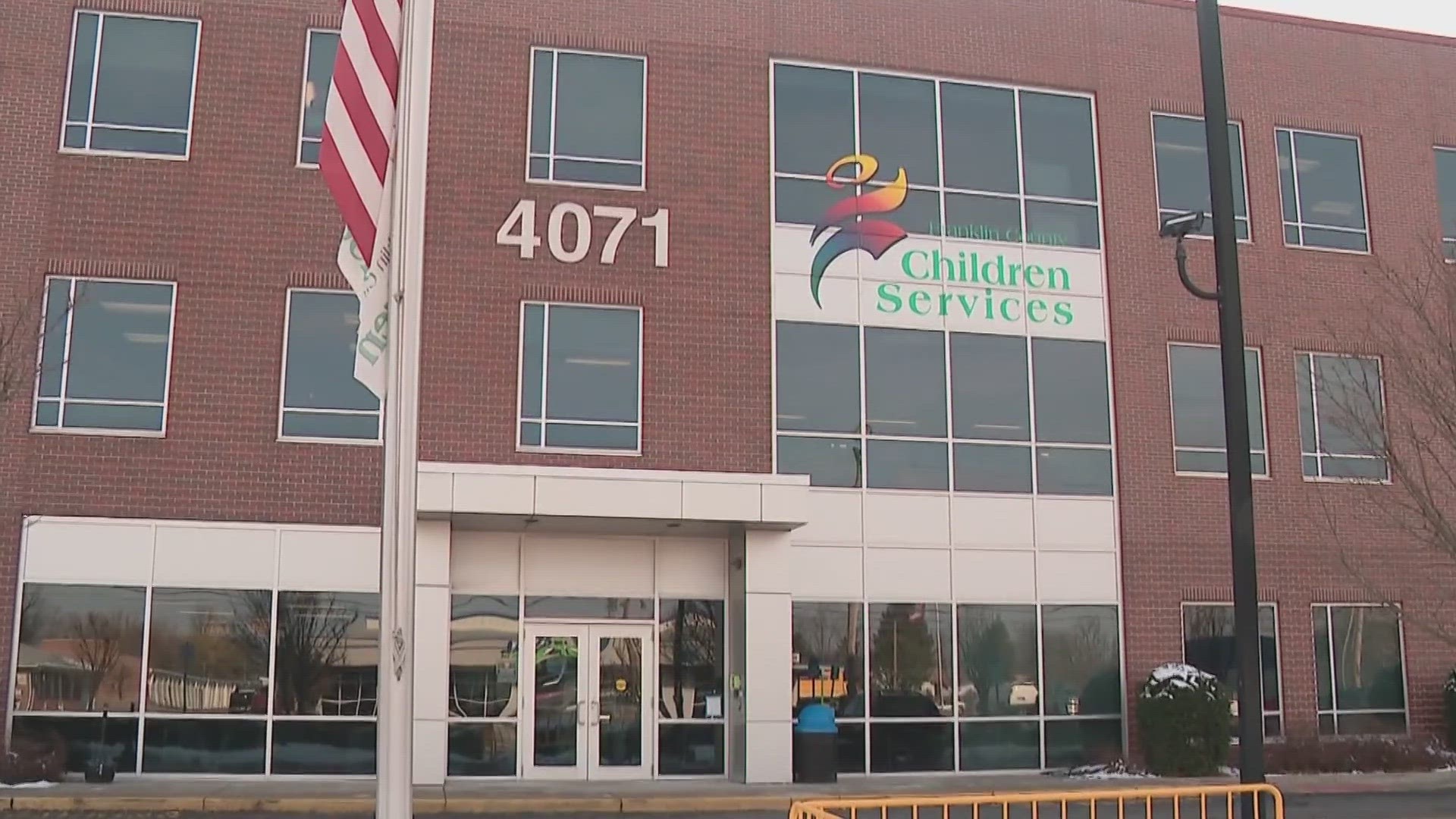COLUMBUS, Ohio — It is a crisis the numbers show may be getting worse.
Since 2020, 162 foster children have slept in the office of Franklin County Children Services.
And so far this year, 36 children have spent the night there – a number on pace to surpass last year’s figure of 65.
Foster children end up spending the night in county offices when foster placements can’t be made quickly. While there are fewer foster children in the system than there were three years ago, demands for more foster parents and the unique needs of the children in the foster care system create a crisis where placements are made more challenging.
The state does not require counties to track how often this happens.
The latest estimate is that during the last fiscal year, more than 400 children across Ohio spent at least one night in the office of a county children service agency, according to the Ohio Department of Job and Family Services.
A months-long investigation by 10 Investigates has found this is part of a nationwide crisis within the foster care system – where there exists a number of circumstances that contribute to the placement crisis: include an increasing need for behavioral and mental health treatment among children in the foster care system; an increased demand for more foster parents; and high caseloads and turnover among caseworkers among others.
The net result is that children can end up sleeping in an office building instead of a bedroom.
In our review of government audits, transcripts from state legislatures and news articles from across the country, 10 Investigates found at least 26 states where foster children have ended up sleeping in offices or hotels.

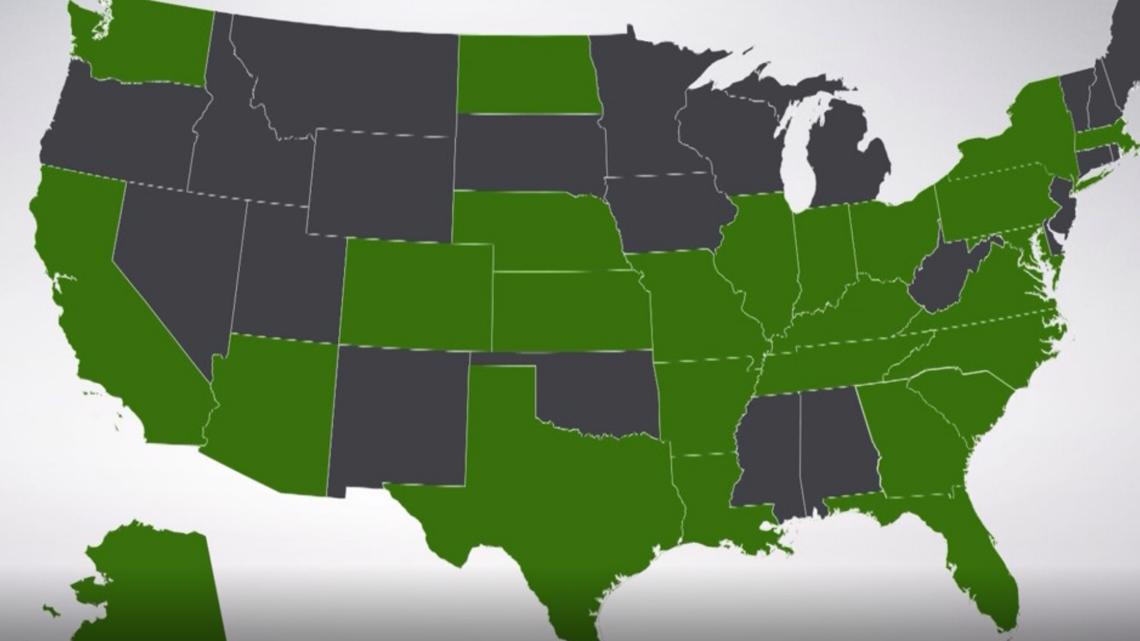
Our investigation has found that children sleeping in offices has led to additional calls to police and transports to Nationwide Children Hospital for children with mental health crises, which raises questions about the safety and efficacy of housing children in office buildings.
Our investigation found while Ohio’s problem lingers, other states are starting to address the issue:
- In Tennessee, the state increased raised the increased starting salary for social workers, and there is an increased push through a partnership to move children out of offices and into transitional housing.
- In Georgia, the state began over additional monies to providers if they would keep children longer
- In Virginia, the governor pushed for the formation of a task force to study ways to remove children from offices and hotels.

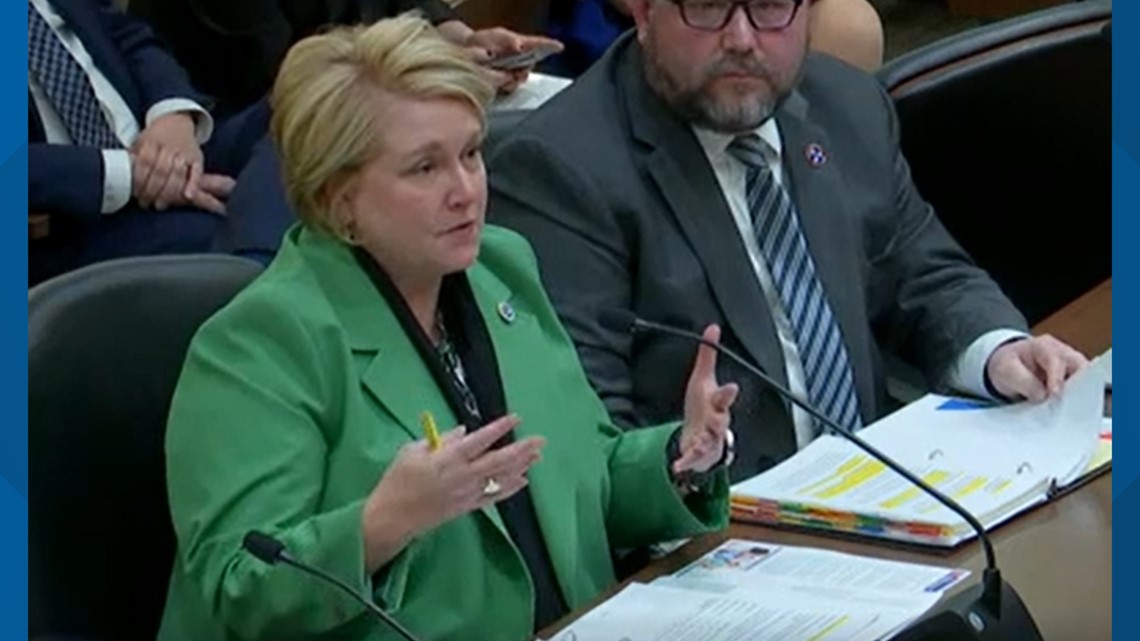
During a hearing before a Tennessee Senate committee on March 15, DCS Commissioner Margie Quin told state lawmakers that her agency had increased the starting salary of caseworkers and work with a faith-based organization to help develop a plan for transitional housing that would move children out of sleeping in county offices.
Both FCCS and ODJFS declined our requests for interviews on this matter but did supply information.
Ohio operates in a state-overseen-county-run system where county children services agencies have some latitude to make determinations for placements. Our investigation found the counties hardest hit with children in offices tended to be in the major metropolitan areas of Columbus, Cleveland and Cincinnati.
Earlier this week, we asked Ohio Gov. Mike DeWine if the state should do more to address this problem.
His response:
“There is more we can do. The budget that we presented to the General Assembly really calls for and allows for what we would call tiered foster care. The key is really – when you have kids with very significant needs you have to have foster parents who are trained to deal with those particular challenges…” DeWine said.

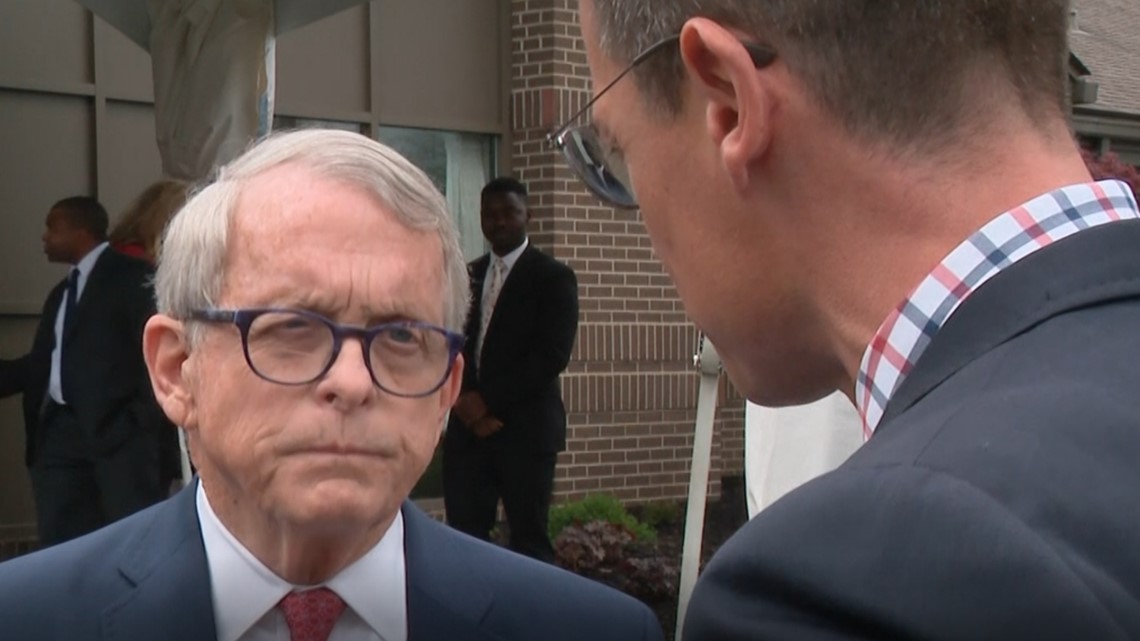
When pressed further about whether an office was a suitable place for children to say, he said: “of course not. No one wants to see that happen. The answer though to that is having more places for these children to go and to have more places for these children to go you have to have trained foster parents.
On Wednesday, the Ohio House of Representatives passed a budget bill that received mixed reviews from the executive director of the Public Children Services Association of Ohio, the group that represents the interests of the children services agencies across the state.
An email to 10 Investigates said, “We are very appreciative that the State Child Protection Allocation within that line item remains intact as these dollars are the only direct state allocation to the county Public Children Services Agencies. However, the reduction in the overall line item if not restored, will impact critical programs and services for foster children, former foster youth, kinship caregivers, foster parents, and adoptive parents.”
Calls to Police
A 10 Investigates’ review of calls for service show that there have been at least 20 calls for service to the Whitehall Division of Police over the past year for issues directly related to problems with children sleeping at Franklin County Children Services.
During one incident in late February, a 12-year-old girl sits in the back of a Whitehall police cruiser after she and two other boys had just run away from the Franklin County Children Services’ office.
Police apprehended them and brought them back.
The inside of the office was damaged. Chairs and other office furniture was overturned.

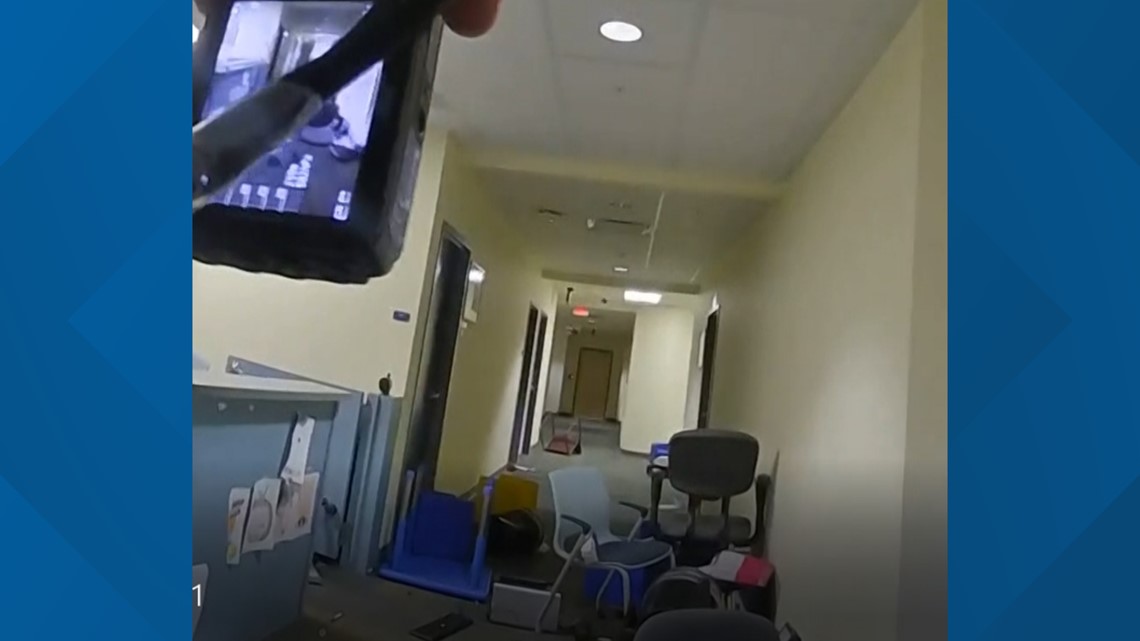
Body camera footage obtained by 10 Investigates through an open records request shows another officer take photos while the girl explained her actions:
“So when I try to calmly talk to them, they don't want to listen,” the girl said. “So when I show this side, they all want to be scared and they want to call the police.
Whitehall Officer: “So what side are you talking about?”
Girl: “The side that you see in there. The side that you'll just seen. The side that you all see us walking out. The side that you all see that whole building destroyed.”
She alleged the caseworkers won’t listen to her unless she acts out. She tells the officer she was previously sexually abused but declines to go into detail.
She told the officer she had been sexually abused in the past but declined to tell him more.
She also alleged that police brought her to FCCS after she called authorities telling them her grandmother had struck her and her brother with a steel bat and later tried to run them over.
“So I called the police, they came and dropped us off,” she said.
The Whitehall officer responded: “Because you didn’t have a safe place to go, right?”
Nationwide crisis
Naomi Riley with think-tank the American Enterprise Institute spoke to 10 Investigates about what she believes is contributing to this problem.
“We're seeing this crisis all over the country,” she said. “And placing kids in hotels or offices, or, you know, homeless shelters, places like that. Any longer than really a night just should not be, you know, part of our spectrum of care.
Riley said part of the problem is these children have unique needs can be challenging for foster parents to handle.
She told 10TV's Bennett Haeberle there is a need for more congregate care facilities to help them.
But our own reporting found that Ohio already spends millions sending kids to out-of-state residential treatment facilities, more than half of which have been mired by allegations of abuse or neglect. And other facilities like Sequel Pomegranate in Columbus have closed down amid allegations of abuse.
“I mean, I understand people feel like they've been burned by these abusive by facilities that are abusive, but the answer to that has got to be more oversight. It cannot just be closing them down left and right,” Riley said.
But former foster children tell us there is a problem with placement in facilities and a need for action now – and that more foster parents may not equate to better care.
Regine Turner and her sister Augustine are now in their 20s and say the problem has been long-standing.
They too stayed in a county children services office building in Cleveland years ago while in between foster placements
“I believe if you interviewed 20 aged-out foster care kids, 18 of us would have bad experiences… if not all,” said Augustine Turner.

